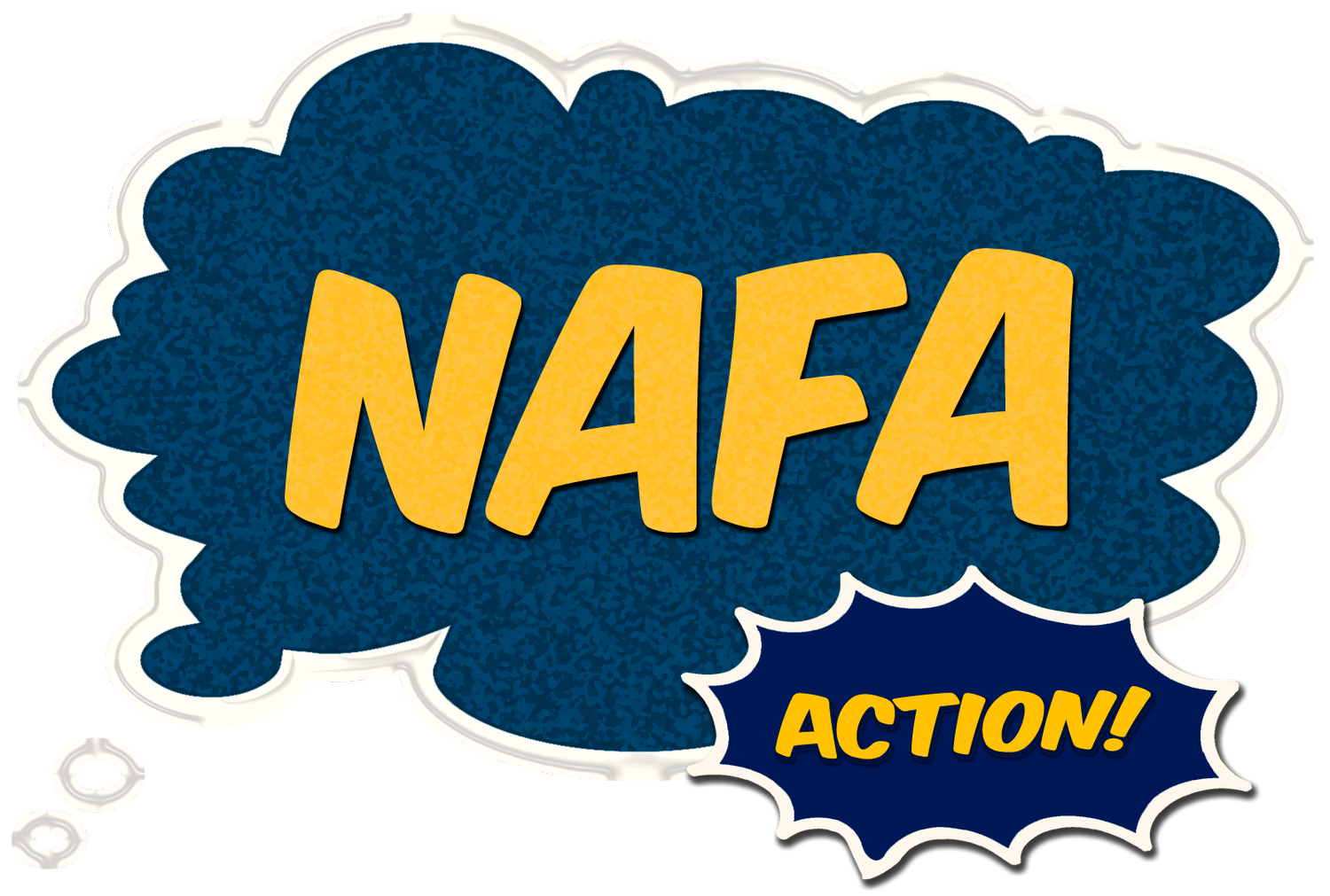Meeting Report: 15 August 2016
The life of the working director
by John Haly
Director Marc Furmie was the guest speaker at our August Choc Tops meeting.
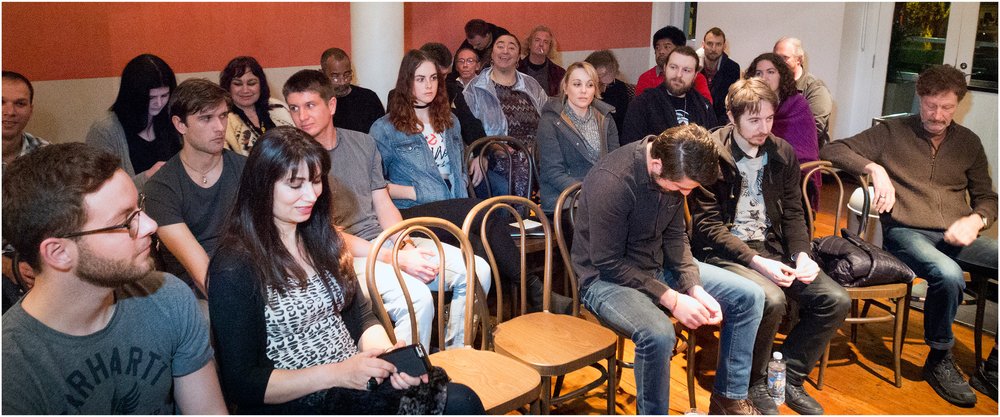 photo by John Haly
photo by John Haly
Early Life
Marc was born in South Africa, inspired by a grandfather who worked as a projectionist and a mother whom he describes as strong willed and who emerged from the brutal apartheid system of South Africa to be working for Muhammad Ali in New York.
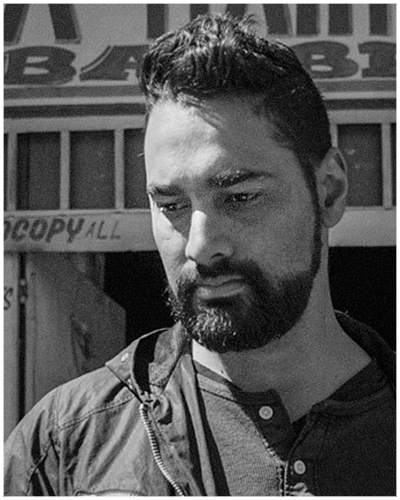 Marc Furmie
Marc FurmieAs with many filmmakers he is finding the cost of living in Sydney prohibitive and, while expressing his admiration for those of us who stay here trying to ply our trade, is moving to LA in a week. His film history for which he is known includes Death’s Requiem (2007), Dark Horse (2009), and Terminus (2015).
He spoke about his childhood memories of remaking Pulp Fiction with an entirely teenage cast using all the dialogue but making the film on VHS cameras. The editing was done on two VHS players linked together. He claims to have no knowledge of what happened to that film but admitted to not wanting to know, either.
At the age of 15 he did work-experience for Filmgraphics — a Sydney-based film and content production company — where he developed connections in the industry early on. He spoke of his early history hanging out at the Cinestore on Liverpool St near Chinatown and learning about film from the disillusioned guy who worked the counter.
University and Lucasfilm
He later went to the University of New South Wales where his studies at COFA, which offers studies in the visual arts, film media and the like, gave him an insight into artistic practices and an appreciation for art, photography and arthouse cinema. Despite difficulties with passing the Sound components of his courses he learnt the lessons only failure and mistakes can teach you.
One of his generous teachers, Tippy Bushkin, invited him to a wrap party for Star Wars: Episode III. There he met and pitched an idea to Hayden Christensen that resulted in his being flown to San Francisco to work on a screenplay there.
He was privileged to meet George Lucas, Rick McCallum and many of the team at Lucasfilm. Despite finishing the screenplay, he felt he was too young to make the most of the opportunity, which he would love to have again today.
Early Career
Returning to Sydney, with eventual funding from Screen Australia, he worked on what he described as one of the most expensive short films ever financed. His work to create a 30-minute supernatural thriller (Death’s Requiem) went considerably over budget after the set he was shooting on flooded, causing $30,000 worth of damage and major delays.
That process generated contacts and for a while Marc pursued making music videos. In 2008-09, in conjunction with Screen NSW, he produced the drama film Dark Horse. From there he pursued a career of branded short films, commercials, and the web series “Event Zero” and later on the sci-fi series “Airlock”.
The Terminus Story
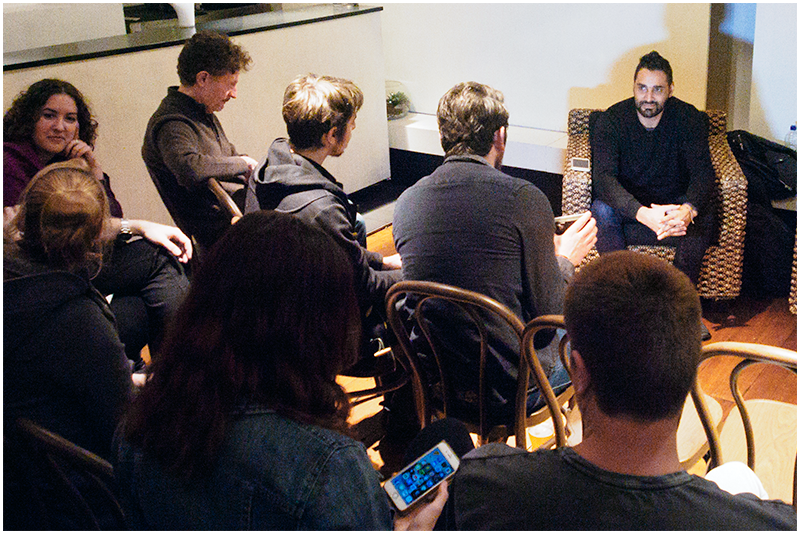 photo by John Haly
photo by John HalyHe spoke of submitting three film pitches for low-budget films and having Brett Thornquest and Shane Abbess pick his third option of Terminus. The investors seemed to love this idea and so Marc and co-writer Shiyan Zheng began writing in earnest. The hurried writing process saw the protagonist shift from being a nuclear physicist to a motor mechanic.
Marc spoke about the slow pace of the beginning of the film, which resulted in it being compared to sci-fi features from the seventies. While he reflected on whether these were the ‘right’ choices for the pace of the film, he noted that it was important to accept ownership of the decisions one makes in a film and move on.
Working with Actors
He spoke about working with actors on a film set and the importance of creating an environment where they can be comfortable with doing their job. It is the job of the director to not get too enmeshed in the technicalities of camera and lighting and set/prop setups and focus on working with the actors to ensure they can do their job unimpeded. Not that some actors make it easy to work with them, he admitted, citing an unnamed example.
He spoke in praise of Judith Weston’s signature workshop course “Acting for Directors” as a significant influence on his directorial approach. He then discussed the pros and cons of getting a ‘name’ actor for a film and how, if your budget allows, there are definite distribution advantages in returning revenues to the film on the long tail end. He said that spending on the film should match the revenue expectations.
The Changing Landscape
Marc discussed marketing for films in the 21st century and how the studio market was being affected by the emergence of Netflix. He reflected on the changes in distribution models he had observed in film marketing as Netflix exploded onto the scene.
Business models for film production were going through a social revolution in terms of how consumers are viewing content. He foresaw that the theatrical experience will be more expensive to produce for over time. If the theatrical model suffers large losses in the future due to customers’ viewing preferences, he reflected it will change how and who makes films in the future.
Digital media is making dramatic changes to the business of television and possibly the theatrical cinema screen. He deplored the unoriginality of major studios doing remakes and reboots of old films because they want to be playing it safe rather than developing original stories. The reluctance to take up new stories, of which there are so many waiting to be told, may in time backfire on the main studios.
Advice to Young Filmmakers
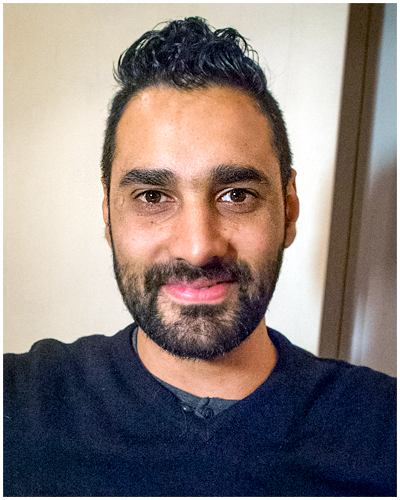 photo by John Haly
photo by John HalyHe rendered a number of pieces of advice learnt from his experience in making films which he had written down as notes to provide to the audience. Marc began going through these.
“Work breeds work!”
He encouraged filmmakers to spend time constantly creating work, irrespective of whether it was reaping immediate finance or reward. Self generation of work has its own momentum in generating projects that pay off.
“Focus on work and educating yourself.”
Marc suggested that if you are struggling for ideas then try telling your story with a touch of magic. Not literal magic or fantasy, but the creation of a spin on your own personal story or experiences of life can be engaging. He then mentioned a number of film storylines, speaking of how the origins of the story came from some personal experiences of the writers.
“A degree of self-deprecation is healthy.”
Be great at what you do and be proud of your accomplishments, but be realistic enough to realise you’re not the best. Narcissism makes friends of only one: yourself. Fight for your projects, engage producers who will fight for their success, but have some perspective.
As another speaker at Choc Tops once said, no matter what you earn, create or generate in the film business, your consumer is ultimately deciding whether your film is worth $10 to go and see, and often the answer is “No”.
Growing the family and pruning the weeds
Marc spoke about building a ‘family’ of people and contacts around you who want to make films. He spoke of growing your family and pruning the weeds. Work with people who are better than you, if you can. Avoid the ‘amateur mafia’ and naysayers — stay away from negative energy that saps your will to work and create.
It may be an incestuous group of contacts that gets films promoted, but they are the family that push you on to succeed. If they are any good they won’t allow you to rest on your laurels and will encourage you to continue to generate work.
Wrap Up
Tony wrapped up the meeting as the questions began to slow down, but the room had an obvious atmosphere of interest in Marc’s experiences and advice. We at NAFA wish him luck in his relocation to LA next week and look forward to seeing the fruits of his creative journey ahead.
